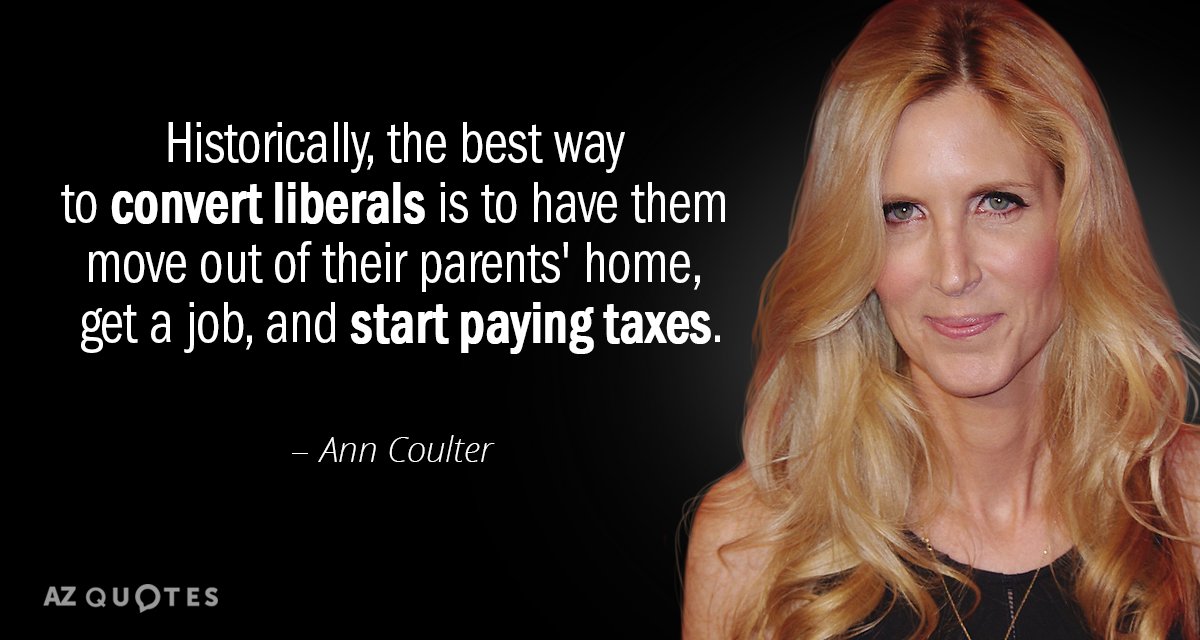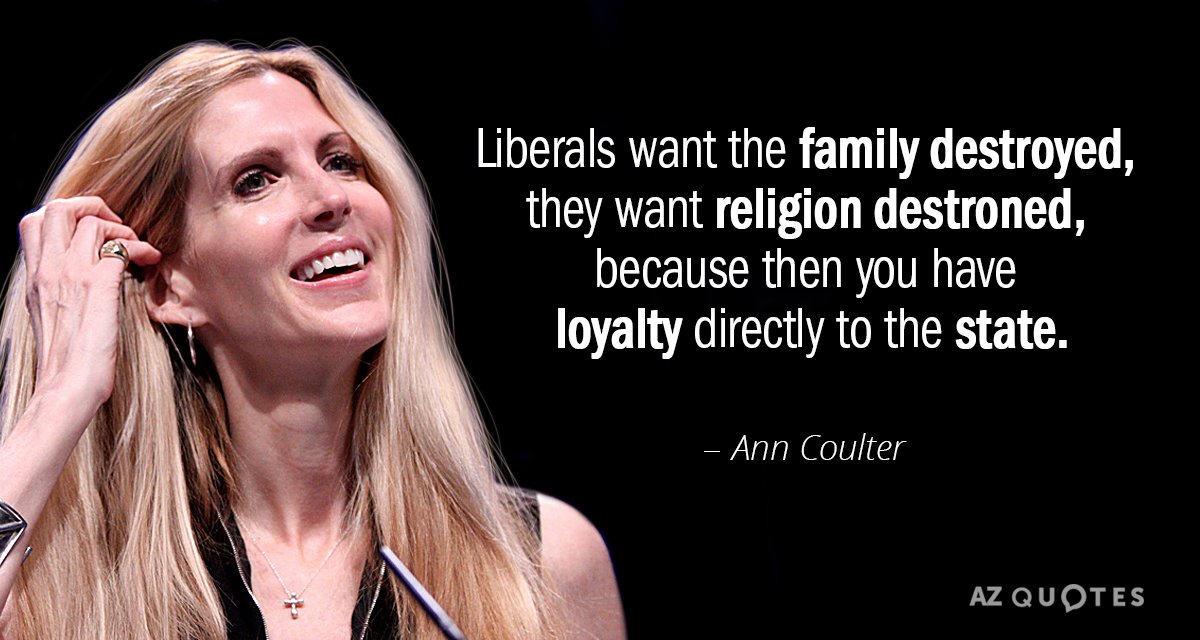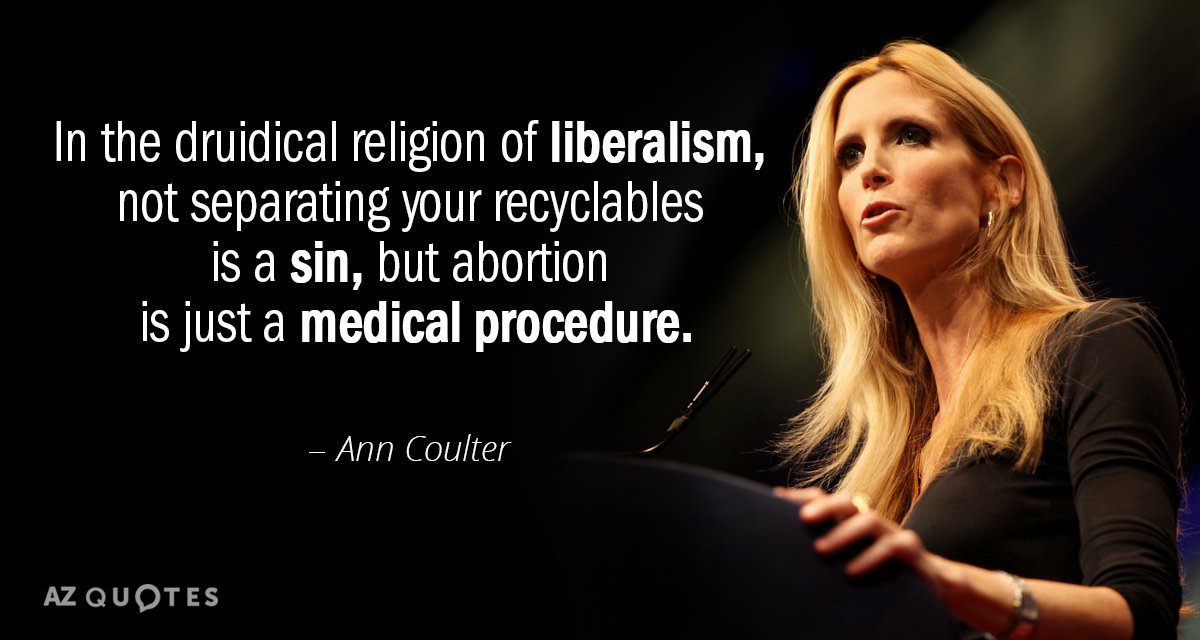Ann Coulter - Unpacking Her Public Persona
Ann Coulter, a figure who, like, really gets people talking, has been a significant presence in American public discussions for quite some time. She is, to be honest, someone many people recognize for her distinct way of speaking her mind, often without holding back, which, you know, tends to create a stir. Her influence, it seems, stretches across various media platforms, where she shares her views on a wide array of topics, more or less shaping parts of the conservative conversation. She has, basically, made a name for herself by presenting her thoughts in a way that, well, certainly gets noticed, sometimes even leading to a bit of disagreement among different groups.
This individual, a known commentator and writer, has carved out a public space through her outspoken approach to political subjects. Her beginnings as a media analyst in the late 1990s, appearing on various programs, really helped establish her as a voice in the conservative landscape. It was during this period that she, quite literally, began to gain wider recognition, setting the stage for her later work as an author and syndicated columnist. She has, in a way, been a consistent presence, offering her perspectives on current events and the direction of public policy for a good number of years now.
So, in this piece, we are going to explore the journey of this public personality, looking at the roots of her ideas, the notable things she has written, and the sort of mark she has left on political discussions. We will, you know, try to get a better sense of the various roles she has taken on, from being a legal professional to a well-known writer, and how all these aspects come together to form the person many see today. It is, pretty much, a look at how someone becomes such a recognizable voice in the often-loud world of political commentary.
Table of Contents
- Ann Coulter's Beginnings and Public Life
- Who is Ann Coulter, Really?
- What Are Ann Coulter's Core Beliefs?
- Ann Coulter's Stance on Federalism and More
- How Has Ann Coulter Engaged with Controversy?
- The Public Statements of Ann Coulter
- Ann Coulter's Written Works and Media Presence
- What's Next for Ann Coulter's Voice?
Ann Coulter's Beginnings and Public Life
Ann Coulter, a person whose life has been quite public, came into the world on December 8, 1961, right there in New York City, New York, in the United States. This starting point, a bustling urban center, might suggest a certain kind of upbringing, perhaps one where ideas and discussions were always, you know, part of the daily rhythm. Her early years, one might suppose, laid some of the groundwork for the path she would eventually choose, a path that involves a lot of public speaking and sharing of opinions.
Being born and growing up in a place like New York City, which is, basically, a melting pot of different thoughts and ways of life, could have, in some respects, shaped her ability to articulate her views so clearly. It is, after all, a city where many voices compete for attention, and learning to make your own heard is, quite possibly, an early skill one picks up. This kind of setting, you know, often encourages a directness in communication, which is something many people associate with her public appearances and writings.
Beyond her political commentary, Ann Coulter has also dipped her toes into the world of entertainment, taking on roles as an actress and a writer. She is, for instance, known for her part in the movie "Sharknado 3," which came out in 2015, and also for her work on "In Trump We Trust." These ventures, honestly, show a different side to her public persona, one that goes beyond the serious political discussions she typically engages in. It is, in a way, a bit surprising to see her in such varied roles, demonstrating a willingness to explore different creative avenues.
Her connection to significant political moments also includes a role in the Clinton impeachment scandal, a period explored in the television series "American Crime Story." This, as a matter of fact, highlights how her involvement in legal and political matters goes back quite a ways, even before she became the widely recognized media personality she is today. It suggests, you know, that her path to public prominence was built on a foundation of engagement with important national events, giving her a unique perspective on how things work in Washington.
Who is Ann Coulter, Really?
When people ask, "Who is Ann Coulter, really?" they are often trying to get at the heart of her public persona, which is, you know, quite distinct. She is, essentially, a commentator who has a very direct way of expressing her thoughts, sometimes in a manner that can be seen as, shall we say, rather blunt. Her approach to public discourse is, honestly, one that seeks to challenge conventional wisdom, often using strong statements to make her points heard, which, more or less, defines her style.
She began to really make a name for herself as a media analyst in the late 1990s, which is when she started to appear more frequently on television and other platforms. This period was, in some respects, a time when cable news and talk radio were growing, offering new spaces for commentators to share their views. Ann Coulter, basically, stepped into this expanding media landscape and, you know, quickly established herself as a voice that people either strongly agreed with or strongly disagreed with, but rarely ignored.
Ann Coulter is, to put it simply, an American conservative media pundit, an author who has written a good number of books, a syndicated columnist whose words appear in many places, and a lawyer by training. These various titles, actually, paint a picture of someone who is deeply involved in shaping public opinion and legal thought from a conservative viewpoint. Her background as an attorney, for instance, arguably gives her a particular way of looking at issues, often focusing on legal arguments and interpretations, which, you know, tends to come through in her commentary.
| Detail | Information |
|---|---|
| Born | December 8, 1961 |
| Birthplace | New York City, New York, USA |
| Occupations | Conservative media pundit, author, syndicated columnist, lawyer, actress, writer |
What Are Ann Coulter's Core Beliefs?
When it comes to her core beliefs, Ann Coulter stands firmly within the conservative tradition, advocating for principles that, you know, have been central to that movement for a long time. Her political leanings are, honestly, quite clear, and she often articulates them with a certain kind of conviction that leaves little room for doubt about where she stands. She is, in a way, a strong voice for what she sees as foundational conservative ideas, something that guides much of her public commentary and writing.
Her connection to the Federalist Society is, actually, a good indicator of her intellectual leanings and the legal framework through which she views political issues. This group, as a matter of fact, is known for promoting conservative and libertarian legal principles, and being a member means she shares a commitment to certain ideas about how the law should be interpreted and applied. It suggests, you know, that her arguments are often rooted in a particular school of legal thought, giving them a certain kind of structure and depth.
Being a staunch advocate, as she is described, means she is, basically, a very strong supporter of the ideas she believes in, pushing for them with a lot of energy and determination. It is, pretty much, a way of saying she is not shy about making her case and standing up for what she thinks is right, even when those ideas might be unpopular with some groups. This kind of advocacy, you know, requires a certain level of conviction and a willingness to engage in public debate, which she clearly possesses.
Ann Coulter's Stance on Federalism and More
Ann Coulter's stance on federalism, originalism, states' rights, and textualism are, in some respects, the pillars of her political and legal philosophy. Federalism, for instance, is about dividing power between a central government and individual states, which, you know, means states get to have a lot of say in their own affairs. Originalism, on the other hand, is about interpreting the Constitution based on what its words meant when they were first written, rather than, say, changing their meaning over time. These ideas, honestly, tend to shape how she views almost every policy discussion.
Her advocacy for states' rights, for example, means she believes individual states should have more power and autonomy, rather than having too much control centralized in the national government. And textualism, which is, basically, about sticking to the plain meaning of legal texts, especially laws and the Constitution, is another key part of her thinking. These beliefs, actually, mean she often looks at issues through a lens that emphasizes limited government and adherence to what she sees as the original intentions of legal documents. It is, in a way, a consistent framework for her arguments.
This framework is quite evident in her column from June 26, 2025, where she raises a question that, you know, certainly gets people thinking: "if illegals are illegal, why are their babies citizens?" This question, as a matter of fact, touches on a very sensitive and debated topic, highlighting her direct approach to challenging prevailing interpretations of citizenship and immigration. It shows, you know, how she uses her platform to push for discussions on issues that she feels are not being addressed adequately or are being interpreted in ways she disagrees with.
The discussion around birthright citizenship, which Trump's order tried to end but was blocked by courts, is, essentially, a big part of this conversation. Critics, you know, often say that the 14th Amendment, which grants citizenship to those born in the U.S., was really meant for freed slaves after the Civil War, not for the children of undocumented immigrants. Ann Coulter's column, as a matter of fact, seems to align with this viewpoint, arguing for a more restricted reading of the amendment. It is, pretty much, a central point of contention in her public commentary, reflecting her broader legal and political outlook.
How Has Ann Coulter Engaged with Controversy?
Ann Coulter, as many people know, has a reputation for frequently courting controversy, which is, honestly, a big part of her public image. This means she often says things that, you know, stir up strong reactions and get a lot of people talking, sometimes in ways that are not always in agreement. Her statements, described as "brash," tend to be very direct and, basically, designed to make a point, even if that point might be seen as provocative by some. It is, in a way, a consistent characteristic of her public appearances.
When we talk about "brash statements," we are, in some respects, referring to her willingness to use language that is quite strong and often, you know, goes against what many consider to be polite or conventional. This style of communication can, naturally, lead to heated debates and push people to react, whether in support or opposition. It is, actually, a deliberate choice in her public speaking, aiming to cut through the noise and deliver her message with maximum impact, which, you know, often results in a lot of discussion.
The way her ideological opponents react to her statements is, pretty much, a predictable part of the cycle. When she speaks, those who hold different views are, obviously, quick to respond, leading to public disagreements and debates that play out across various media platforms. This back-and-forth, as a matter of fact, is a constant feature of her public life, showing how her words can act as a catalyst for broader political arguments. It is, in a way, a dynamic that she seems to be quite comfortable with, even if it means being at the center of a storm.
The Public Statements of Ann Coulter
The nature of public commentary, especially from someone like Ann Coulter, often involves expressing views that, you know, are meant to be heard and debated. Her statements are, basically, part of a larger conversation, and the reactions they draw are, honestly, a sign of their impact. She is, in a way, someone who understands that in the world of political punditry, getting attention for your ideas is, pretty much, essential, and sometimes that means saying things that challenge the status quo.
Her role as a political commentator means she is, you know, expected to offer strong opinions on current events and policy matters. This is, after all, what commentators do: they comment. And for someone like Ann Coulter, that often involves taking a very firm stance and expressing it in a manner that leaves little room for ambiguity. It is, in a way, about making her position clear, even if that clarity means being perceived as, shall we say, quite assertive in her delivery.
The idea of frequent controversy, then, is, actually, not just a byproduct but, in some respects, an integral part of her public image. It is, you know, what many people have come to expect from her, and it helps define her place in the media landscape. This consistent engagement with contentious topics means she is, basically, always in the public eye, ensuring that her voice, and the ideas she represents, continue to be a part of the national dialogue. It is, in a way, a strategy that has kept her relevant for a long time.
Ann Coulter's Written Works and Media Presence
Ann Coulter has had, honestly, quite a successful career as an author, having written thirteen books that have made it onto the New York Times bestseller list. This achievement, you know, is a significant one in the publishing world, indicating that her ideas and her writing style resonate with a large number of readers. It suggests, in a way, that her ability to communicate her conservative viewpoints extends beyond spoken commentary and into the written word, reaching a broad audience who are eager to engage with her thoughts.
The significance of being a bestseller, especially thirteen times over, is, basically, a testament to her consistent appeal and the strong following she has cultivated. It means that, you know, her books are not just read by a few people but are widely purchased and discussed, making her a prominent figure in the literary landscape of political non-fiction. This kind of success, as a matter of fact, also gives her a powerful platform to further disseminate her ideas and influence public opinion through a different medium than her regular media appearances.
In addition to her books, she also writes a popular syndicated column every week, which is, actually, published in a variety of well-known online outlets. These include Breitbart, Daily Caller, Townhall, FrontPage, and Yahoo, among others. The fact that her column appears in so many places means that her opinions are, you know, regularly reaching a vast and diverse readership, reinforcing her presence as a consistent voice in conservative media. It is, in a way, a steady stream of her thoughts flowing into the public conversation


